“Running of the Bulls” gang rape verdict sparks international debate
UN and EU Parliament weigh in on Spanish court’s decision to clear five men of sexual assault, while protests in Spain continue
Madrid
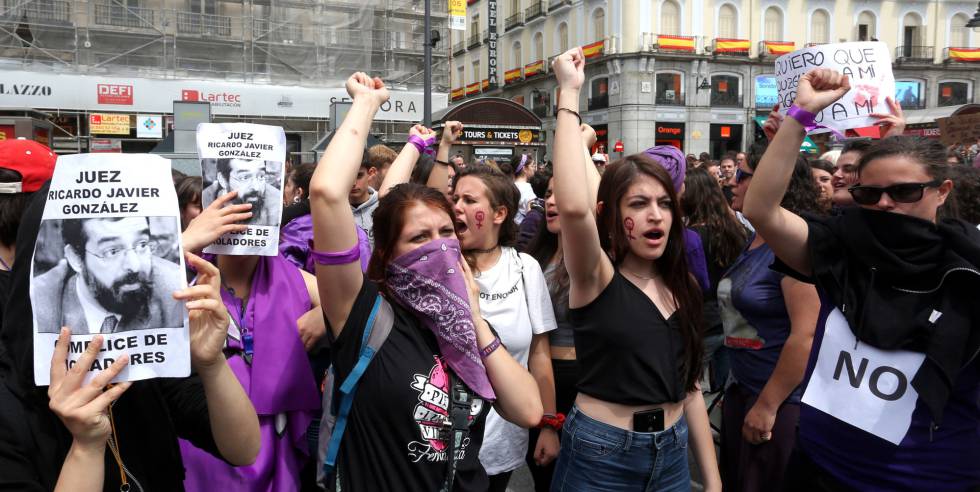
Protests in Madrid against La Manada court sentence. JAIME VILLANUEVA EL PAÍS
Spaniards on Wednesday continued to protest a Navarre court’s decision to acquit five men at the center of the so-called “La Manada” case of raping an 18-year-old at the world-famous Running of the Bulls fiestas in 2016. The defendants were instead found guilty of the lesser charge of sexual abuse and handed nine-year prison sentences and a €50,000 fine.
Hundreds of women gathered in downtown Madrid on a day when regional authorities were making public statements on the occasion of the Dos de Mayo public holiday. Wearing purple shirts and bracelets, the demonstrators advanced towards Puerta del Sol chanting: “They’re going to hear us,” and: “It’s not abuse, it’s rape.”
1,800 psychologists and psychiatrists have questioned the basis for the verdict
The controversy over La Manada trial also reached the international arena this week.
On Wednesday, the European Commission and Council added statements about “Spain’s application of international standards on sexual violence in light of the recent ‘La Manada’ case” to the agenda of parliamentary debates. The issue was brought up by Spain’s left-wing anti-austerity party Podemos with support from the main opposition Socialist Party (PSOE), but was opposed by the governing Popular Party (PP).
Purna Sen, the executive coordinator at UN Women, the United Nations agency, also mentioned the case on Wednesday in a statement about sexual harassment in the world.
“The light sentencing of ‘the wolf pack’ attackers in Spain diminishes the severity of the violation and undermines clear obligations to uphold the rights of women. Justice must be known by women,” she said.
Also on Wednesday, nearly 1,800 Spanish psychologists and psychiatrists released a statement explaining that in a situation of panic, it is normal for the victim to remain motionless. These experts said that victims should not be the focus of the investigation in these cases, nor should their post-trauma recovery come under question.
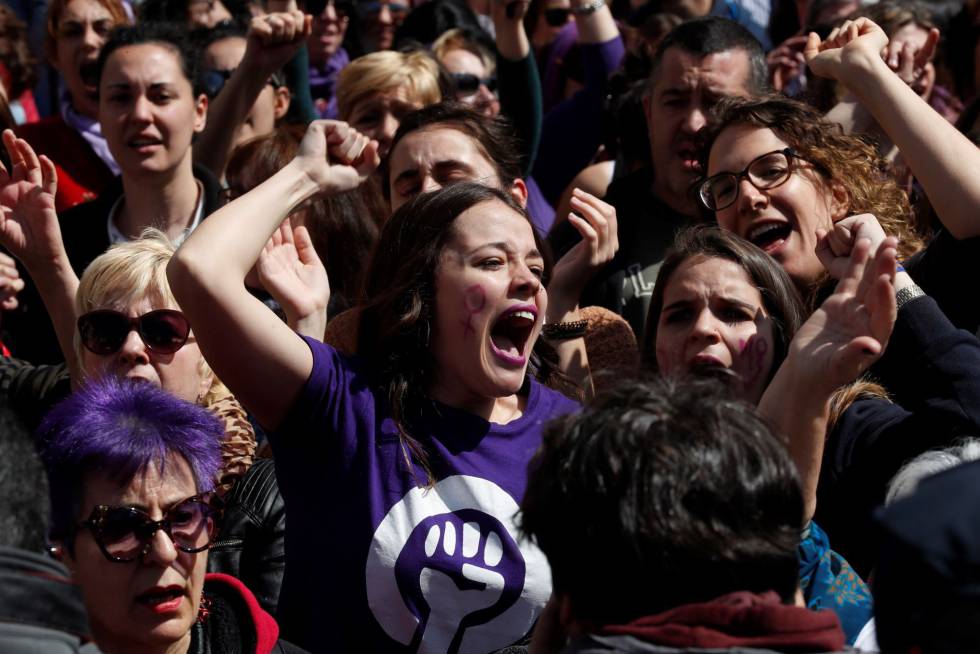
One of the judges on the three-member panel that tried the case called for the men to be acquitted of all charges. In a lengthy dissenting opinion, he argued that the cellphone footage of the incident showed that the victim had not put up a fight, nor shown any opposition to the sexual acts.
The victim was also followed by private detectives hired by the defense in an effort to prove that she had not been particularly traumatized by the assault, and was living a normal life. Her social media posts were also scrutinized. The detectives’ report was initially accepted as evidence, then dropped following a public outcry.
There have been dozens of protests across Spain since April 26, the day when the court in Navarre made the ruling public. The case has touched a nerve in a year when women’s rights have gained new visibility. On March 8, Spain held a “feminist strike” that was followed by five million people, according to the trade unions, to protest the gender pay gap and the issue of gender violence.
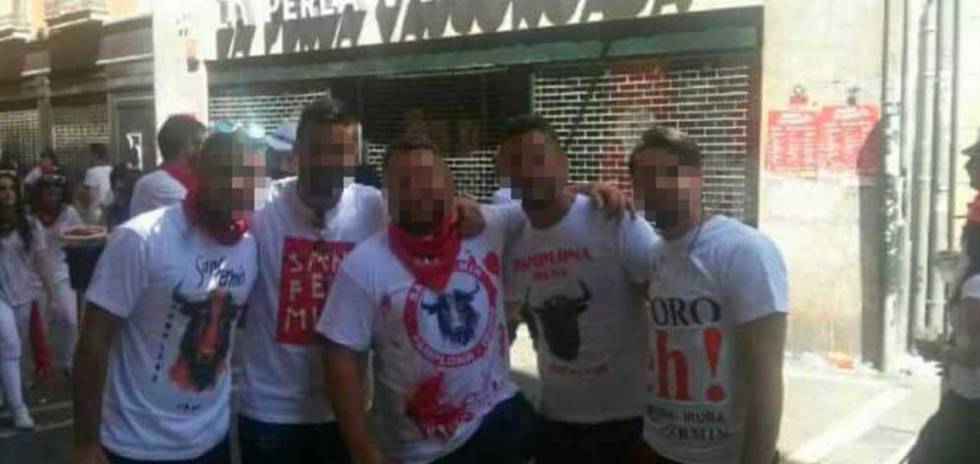
The La Manada verdict immediately sparked nationwide protests and elicited statements by members of government, who promised a review of criminal legislation. The justice minister on Monday also insinuated that the judge who defended a complete acquittal may have been unfit for the post, triggering a swift rebuttal from legal associations who argued that the executive should not meddle in the judiciary’s affairs.
The case became known as La Manada (The Pack) after the name of the WhatsApp chat group used by the five men and other friends of theirs. One of the defendants is a member of the armed forces while another is in the Civil Guard. Both have been suspended, but continue to receive a percentage of their salaries.
English version by Susana Urra.
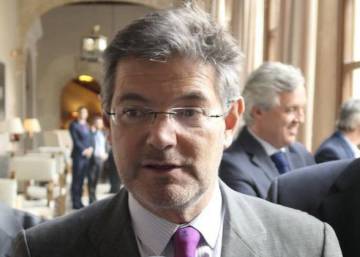
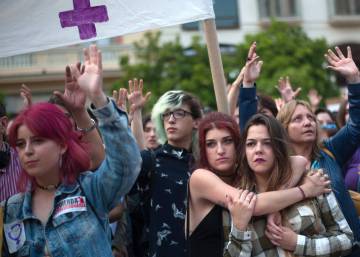
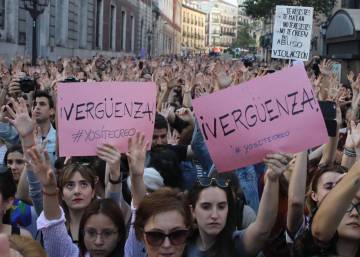
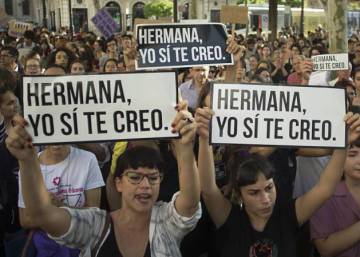





































No hay comentarios:
Publicar un comentario